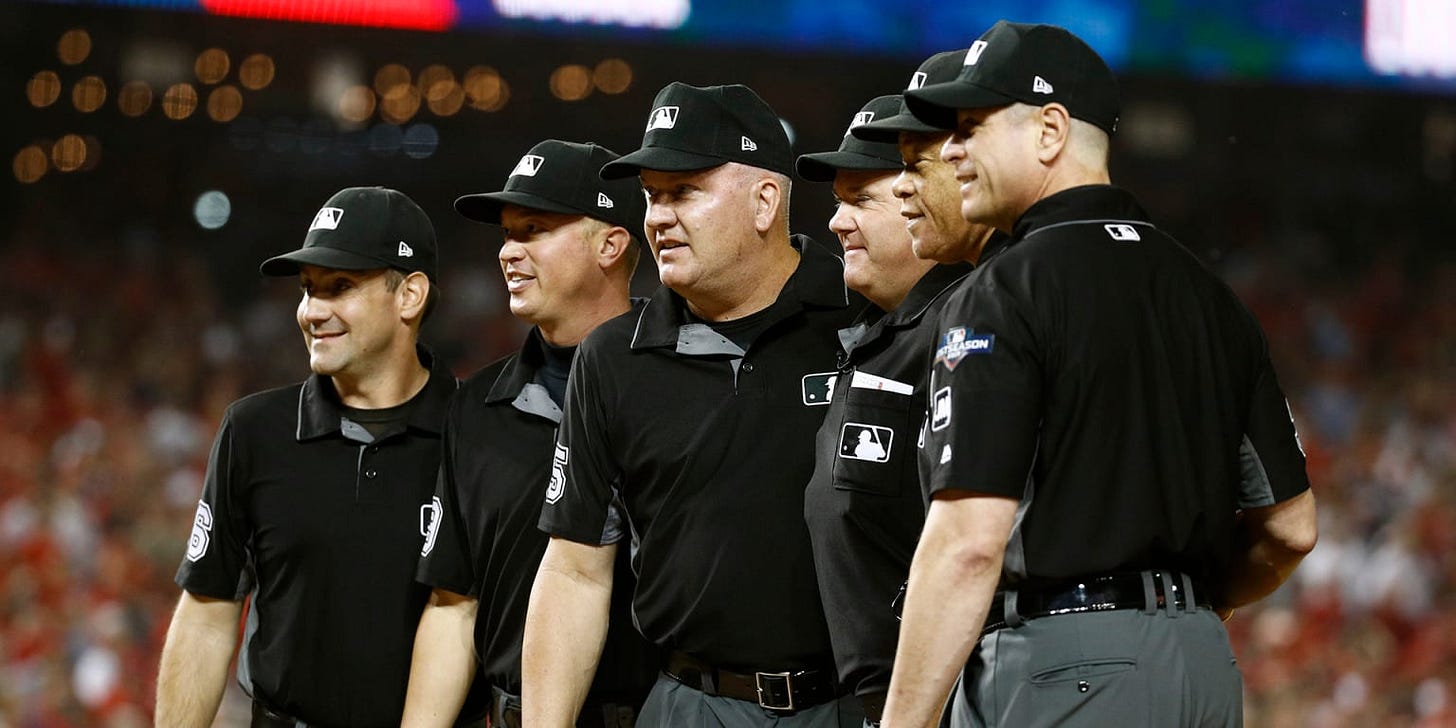How Much Do MLB Umpires Make? Complete 2025 Salary Breakdown
While the path requires years of dedication and training, MLB umpiring ultimately provides compensation that reflects the critical role these officials play in maintaining the integrity and flow of Am
Major League Baseball umpires occupy one of the most scrutinized positions in professional sports, making split-second decisions that can determine the outcome of games worth millions of dollars. While fans debate their calls from the stands, many wonder about the financial compensation these officials receive for their crucial role in America's pastime.
The answer reveals a profession that offers substantial financial rewards, particularly for those who reach the highest levels of the sport. MLB umpires earn significantly more than officials in most other sports, reflecting both the demands of their position and the revenue generated by professional baseball.
MLB Umpire Salary Structure
Major League Umpire Base Salaries
MLB umpires currently earn between $150,000 and $450,000 annually, according to Major League Baseball's official compensation structure. This wide range reflects the experience-based pay scale that governs umpire compensation.
Entry-level MLB umpires typically start around $150,000 per year, while veteran officials with decades of experience can earn upwards of $450,000 annually. The most senior umpires, particularly those regularly assigned to playoff games and the World Series, command the highest salaries in this range.
Crew Chief Premium
Crew chiefs, who lead four-person umpiring crews during regular season games, receive additional compensation beyond their base salary. These experienced officials earn an estimated $20,000 to $40,000 premium on top of their standard pay, reflecting their leadership responsibilities and enhanced decision-making authority during games.
Minor League to Major League Progression
Minor League Salaries
The path to MLB umpiring begins in the minor leagues, where compensation is significantly lower. Minor league umpires earn between $2,300 and $3,900 per month during the season, which typically runs from April through September.
- Rookie leagues: $2,300 per month
- Single-A: $2,500 per month
- Double-A: $3,200 per month
- Triple-A: $3,900 per month
This represents a substantial increase from previous years, following negotiations between MLB and umpire unions that improved minor league working conditions and compensation.
Development Timeline
The journey from minor league umpiring to the major leagues typically takes 7-10 years of professional experience, according to industry experts. Only the most skilled and dedicated officials advance through the ranks, making MLB umpiring positions extremely competitive.
Professional umpires must attend specialized training schools, such as the Wendelstedt Umpire School or Minor League Baseball Umpire Training Academy, before beginning their minor league careers.
Additional Compensation and Benefits
Playoff and World Series Bonuses
MLB umpires selected for postseason assignments receive substantial bonuses beyond their regular salaries:
- Wild Card games: $17,500 per umpire
- Division Series: $22,500 per umpire
- Championship Series: $28,500 per umpire
- World Series: $40,000 per umpire
These assignments are highly coveted, as they represent both career recognition and significant financial rewards. The selection process considers performance evaluations, experience, and availability.
Benefits Package
MLB umpires receive comprehensive benefits that enhance their total compensation package:
- Health insurance: Full medical, dental, and vision coverage
- Retirement plan: Substantial pension benefits after qualifying years of service
- Travel expenses: All transportation, lodging, and meal costs during road assignments
- Equipment allowance: Annual stipends for uniforms and protective gear
The travel benefits alone represent significant value, as MLB umpires work approximately 142 games per season across the country.
International and Special Assignment Pay
World Baseball Classic
Umpires selected for international competitions like the World Baseball Classic receive additional compensation. These prestigious assignments typically pay $15,000 to $25,000 depending on the tournament scope and duration.
Spring Training
During spring training, MLB umpires earn their regular per-game rates while working exhibition games. This extends their earning season beyond the regular 162-game schedule, adding approximately $15,000 to $25,000 to annual income.
Career Longevity and Earnings Potential
Veteran Umpire Advantages
Experienced MLB umpires benefit from job security rarely found in professional sports. Unlike players, umpires can work well into their 60s, with mandatory retirement typically occurring around age 65. This longevity allows for substantial career earnings, with veteran officials potentially earning over $8 million throughout their MLB careers.
The profession's stability contrasts sharply with player careers, which average just a few years in length. While the financial rewards may not match those of star players featured in analyses like our coverage of the economics of professional sports, umpiring offers consistent, long-term earning potential.
Performance Evaluation Impact
MLB umpires undergo continuous performance evaluation through advanced tracking systems like Statcast. High-performing officials receive priority for playoff assignments and potential salary increases, while those struggling may face additional training requirements or reassignment.
Comparison to Other Sports Officials
MLB umpires rank among the highest-paid officials in professional sports. NFL referees earn $25,000 to $70,000 per season, while NBA referees make $150,000 to $550,000 annually. The year-round nature of baseball, with its 162-game regular season, contributes to the substantial earning potential for MLB umpires.
Conclusion
MLB umpiring represents a unique career path that combines substantial financial rewards with the challenges of officiating at the highest level of professional baseball. With salaries ranging from $150,000 to $450,000 annually, plus significant bonuses for playoff assignments, successful umpires can build lucrative careers spanning decades.
The profession demands exceptional skill, physical fitness, and mental fortitude to handle the pressure of making crucial decisions in front of millions of fans. For those who successfully navigate the competitive minor league system and reach the major leagues, umpiring offers financial security and the opportunity to be part of baseball history.
While the path requires years of dedication and training, MLB umpiring ultimately provides compensation that reflects the critical role these officials play in maintaining the integrity and flow of America's national pastime.
For more insights into professional sports economics and careers, visit Up in The Rafters - your source for in-depth sports analysis and industry coverage.




